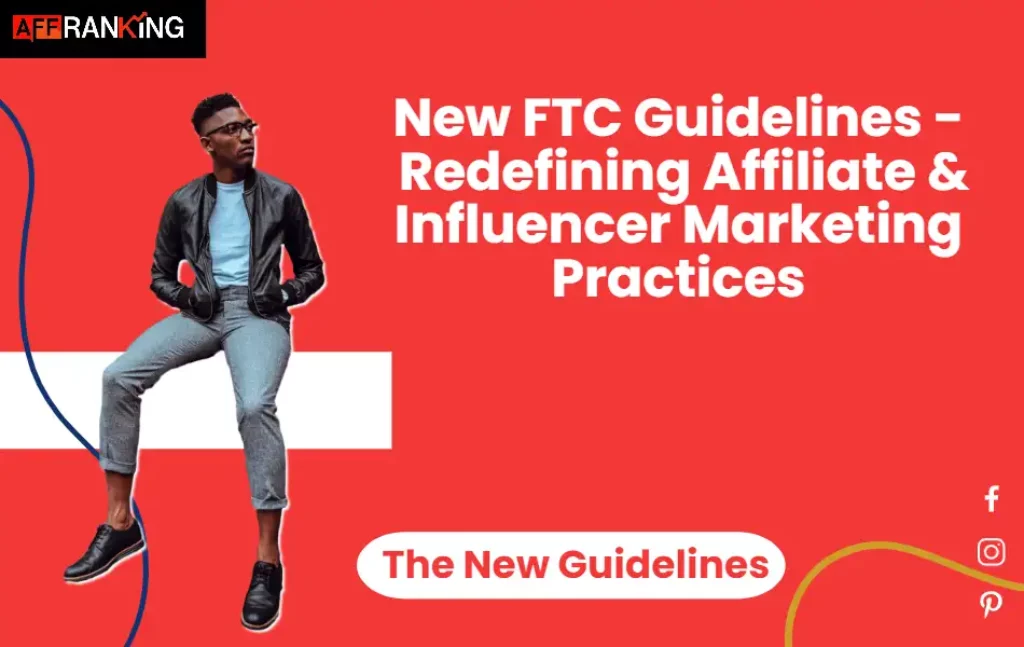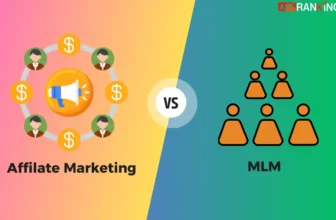
The Federal Trade Commission (FTC) has recently introduced new guidelines for affiliate and influencer marketing. As an affiliate marketer, it's crucial to understand these guidelines to ensure you're operating within the legal framework and maintaining the trust of your audience.
The FTC's Role in Influencer Marketing
The Federal Trade Commission (FTC) plays a pivotal role in the sector of influencer marketing. As the federal agency responsible for consumer protection in the US, the FTC's mission is to prevent deceptive and unfair business practices. This mission extends to the digital sphere, where the FTC has been increasingly vigilant about the practices of influencers and affiliate marketers.
The FTC's involvement in influencer marketing began in earnest with the rise of social media. Recognizing the potential for deceptive advertising practices in this new medium, the FTC released its first guidelines for internet advertising in 2000. These guidelines were updated in 2009 to specifically address the burgeoning field of influencer marketing.
The FTC's guidelines are designed to combat deceptive advertising online, with specific rulings requiring influencers to disclose any business affiliations with the company producing the product they are endorsing. This is based on the principle that consumers have a right to know when they are viewing paid content. The FTC believes that this transparency is crucial for consumers to make informed decisions.
In recent years, the FTC has taken a more proactive approach to enforcing these guidelines. In 2017, the FTC sent letters to 90 influencers and marketers, reminding them of their obligation to clearly and conspicuously disclose their relationships with brands when promoting or endorsing products through social media.
The FTC's role in influencer marketing extends beyond issuing guidelines and sending warning letters. The agency also has the power to levy fines against influencers and brands that fail to comply with its guidelines. In some cases, the FTC has even pursued legal action against companies for failing to ensure their influencers are making the necessary disclosures.
The New Guidelines
The FTC's new guidelines emphasize the importance of clear and conspicuous disclosures. If an influencer or affiliate marketer stands to make money or receive any kind of benefit from endorsing a product, it must be disclosed. This includes cash payments, commissions, free products, store credit, discounts, special access, or favors of any kind.
The FTC has made it clear that both brands and influencers are accountable for ensuring proper disclosure in sponsored posts. Failure to disclose business relationships can result in fines for both influencers and brands. Brands may be held liable for penalties if influencers fail to properly disclose their business relationships.
The new guidelines also address the role of social media platforms in facilitating influencer marketing. The FTC has indicated that it expects these platforms to provide tools that help influencers comply with the guidelines. This includes features that allow influencers to clearly label sponsored content.
The Impact on Brands and Influencers
The new FTC guidelines for affiliate and influencer marketing have significant implications for both brands and influencers. The stakes are high, and the consequences of non-compliance can be severe.
Greater Accountability and Potential Penalties
Brands may have the most to lose if they skip the disclosure step in influencer marketing campaigns. The FTC has made it clear that the burden of compliance falls on the advertiser, not just the influencer. This means that brands can be held liable for penalties if influencers fail to properly disclose their business relationships.
Moreover, brands that fail to ensure their influencers are following the guidelines risk damaging their reputation. Consumers value transparency and honesty, and a brand associated with misleading or deceptive advertising practices can quickly lose trust.
On the other hand, influencers who fail to comply with the guidelines risk damaging their credibility and alienating their audience. Today's consumers are savvy and appreciate authenticity. If an influencer is perceived as being dishonest or misleading about their relationship with a brand, it can lead to a loss of followers and engagement.
Moreover, the FTC has indicated that it can take action against individual endorsers in certain circumstances. This means that influencers could face legal repercussions, including fines, for failing to comply with the guidelines.







